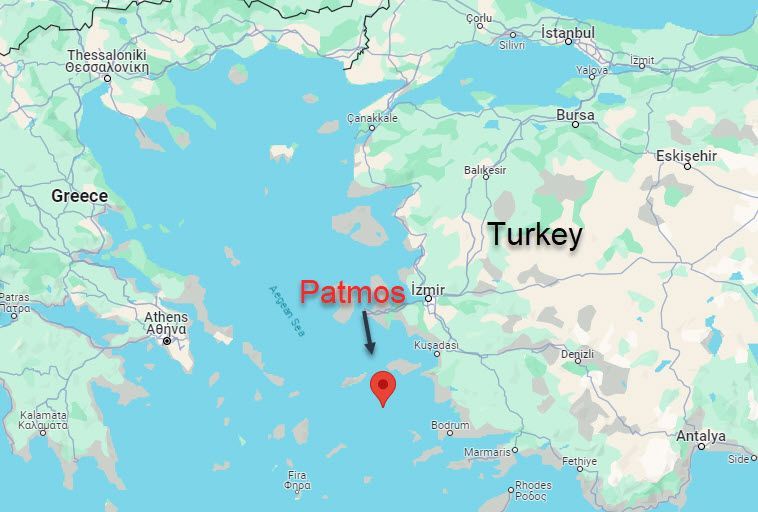The Book of Revelation is not just a Revelation of events. The writer confirms this when he begins the letter by titling it, "The Revelation of Jesus Christ."
It is unfortunate that today, many view the prophecies of Revelation as a way to instill fear into the members of the church. What we must always bear in mind is that this book is not a Revelation of John, it's the Revelation of Jesus Christ. And Christ's Revelation has been given to our church, not so that we can boast, but so we can warn the world of what is soon to happen on this earth.
Historical Setting
The Revelation was written by John on the "isle that is called Patmos" (Rev 1:9). This is a small island off the coast of Turkey.
There is a dispute whether the Revelation was written in 68-69 AD, or in 95 AD. However, because most modern Evangelicals see Nero as a notable character in Bible prophecy, they place John's exile during the persecution of Nero. Although dating the Revelation in the late 60's is a possibility, Adventists have traditionally dated the Revelation around 95 AD which agrees with the testimony of early Christian writers such as Irenaeus.
The Format
The Book of Revelation can be divided into four prophecies:
1) The Seven Churches (chs. 1-3)
2) The Seven Seals (chs. 4-8:1)
3) The Seven Trumpets (chs. 8:2-11)
4) The Closing events of the Great Controversy (chs. 12-22)
Ellen White's counsel on the Book of Revelation
"Let none think, because they cannot explain the meaning of every symbol in the Revelation, that it is useless for them to search this book in an effort to know the meaning of the truth it contains. The One who revealed these mysteries to John will give to the diligent searcher for truth a foretaste of heavenly things. Those whose hearts are open to the reception of truth will be enabled to understand its teachings, and will be granted the blessing promised to those who “hear the words of this prophecy, and keep those things which are written therein.” In the Revelation all the books of the Bible meet and end. Here is the complement of the book of Daniel. One is a prophecy; the other a revelation." AA pp. 584-585.




